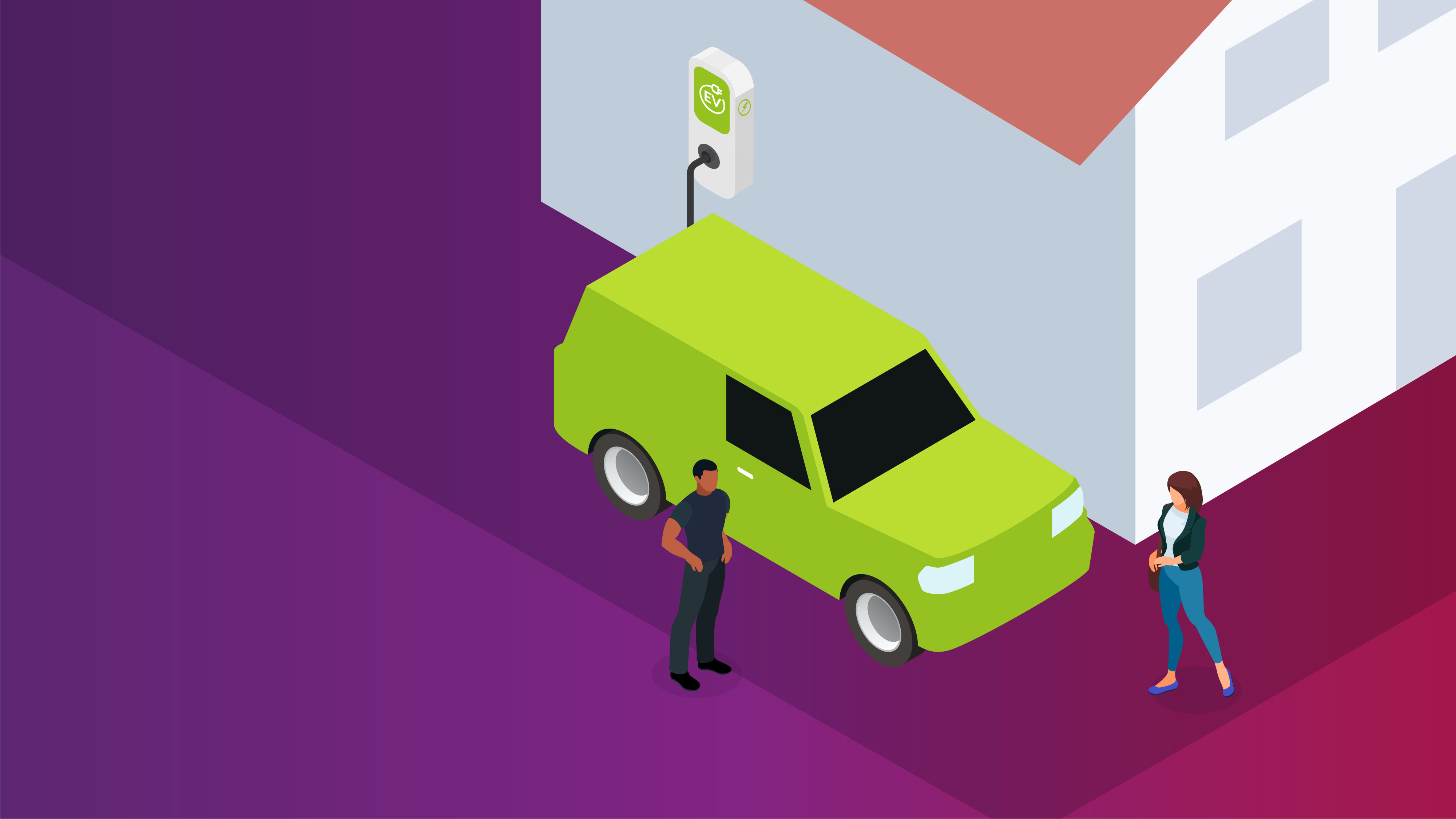At the Open Data Institute (ODI), we often discuss how our mission is to help build more open and trustworthy data ecosystems. And true as this is, this has always been more of a means than an end. We want more open and trustworthy data ecosystems, because the big challenges that our societies face require, among many other things, access to trusted data for a variety of different organisations.
No place is this truer than in one of our more complex systems, the energy system. The energy system is a fulcrum in our battle against the climate crisis, is directly connected to our public health, and is a significant part of the global economy.
Only recently have we been able to properly tap into the data flows created by national and regional energy systems. One technology that is aiding these efforts is smart meters.
At the DCC, we understand how important and privileged our position is as the secure platform for energy data. We passionately believe that the smart meter infrastructure the DCC is a custodian of will enable a brighter future.
By 2025 over 20 million homes and 56 million smart meters will be connected to the DCC network. The consumption data generated by these and other connected endpoints in the future will be incredibly valuable in delivering net-zero carbon and social good for the UK.
Smart meters could provide us the chance to better understand the energy system, and to share that knowledge outside of just energy companies and government departments. Greater value can be sought in its analysis by different people and its combination with other data. For example, smart meter data could enable everything from consumption based ‘time of use tariffs’ flexed when surplus renewables are available to detecting changes in the patterns of individuals, enabling health care providers to predict those at risk of Alzheimer’s.
In order for us to get the most out of this consumption data, we need a plan to improve access to it in a way that is secure, equitable, and protects the privacy and other sensitivities of the subjects of that data.
Kick starting the journey towards improving access to smart meter data, the ODI has collaborated with DCC on our Data for Good programme. Through the Data for Good initiative, we are committed to exploring the ways the data infrastructure we steward can be used to bolster government priorities such as net zero, levelling up and Build Back Better.
“Building open and shared data infrastructure for future generations to better understand, manage and consume energy is a huge opportunity to accelerate towards net zero and to build an equitable future energy market. The smart meter rollout in the UK represents a key part of that data infrastructure and requires responsible governance, strong security and a culture of innovation for us to realise its potential benefits. We are delighted to have been working with Smart DCC to make this happen through their ongoing ‘Data for Good’ data access initiative.”Stuart Coleman, Learning and Business Development Director, Open Data Institute
THE WORKSHOP
In the discussion paper, ‘Data for Good’, DCC proposes that organisations should work together to improve access to smart meter ‘system data’ – effectively the metadata about the typical transactional data we think of when imagining the smart meter data ecosystem.
The initiative aims to increase the ability to analyse and use data about the smart meter system, and combine it with data from other organisations, to address some of the big challenges facing the UK, such as reaching net zero, transitioning to a flexible energy system and reducing fuel poverty.
To support this initiative, the ODI conducted two workshops to explore the opportunities and barriers facing improving access to system data in the smart meter data ecosystem. In the first workshop, participants were mainly potential users of smart meter system data, including data-driven service providers, data intermediaries, researchers and academia. The second workshop focused on public concerns of data access and included mainly consumer organisations, civil society organisations and charities.
Across both workshops the main focuses for improving data access in the smart meter space were clear:
- Achieving net zero and local decarbonisation;
- Addressing consumer vulnerability and fuel poverty; and
- Optimising efficiency and reducing costs around domestic energy and bills.
An outcome of the workshop was an understanding that, in order to accomplish this, we need to move Data for Good from an aspiration to a data access initiative.
DATA ACCESS INITIATIVES
Data access initiatives aim to address a specific challenge by increasing access to data between organisations that can tackle it collectively. The scale and design of such initiatives can vary greatly, but they have three core features:
- A community of data holders, data consumers and those impacted by the collection and use of data. DCC can only share data with those authorised to have access. The system data that is available can provide insights to innovators and authorised users to deliver value back to users and ultimately energy customers
- Activities to build or strengthen the data infrastructure in ways that build trust between all parties involved. DCC’s unique position means it is well placed to build trust because we don’t profit from smart meter data. Our core objective is to enable innovation and to share available data in a secure, fair and equitable way only for the purpose of public good
- A governance structure to ensure a shared vision, strategic direction, maintenance and long-term funding. At DCC, our purpose complements Government’s Net Zero 2050 target and Ofgem’s objectives of protecting the interests of consumers, facilitating decarbonisation at the lowest cost, and enabling competition and innovation.
These initiatives help make ecosystems more open, allowing for new actors and innovations that can provide insights and services to tackle large scale challenges. A data access initiative targeting data managed across the smart meter system, including both system data held by DCC and consumption data held by energy providers could have game changing effects across many key areas of society, the environment and the economy. A successful data access initiative in the smart meter data ecosystem could provide benefits in a range of different areas, such as:
- Smarter, more efficient energy networks
Smart meter data can help us improve understanding of energy use at a local level and enable us to think about the energy system from the bottom up. Better understanding of supply and demand from a variety of sources, including renewables and prosumers, could create a smarter, more flexible approach to optimising the system, both to cut carbon and minimise costs. - Working towards net zero
In order to maintain a consistent supply of electricity, the energy system uses fossil fuels to power reserve generators, since cloud cover and low wind could significantly reduce the supply of renewable electricity. To reduce our reliance on a reserve of fossil fuels, we need better data collection and prediction on the supply of renewable energy and we need to match that with comparably accurate collection and prediction on demand. Better data collection through smart meters could also help us understand the potential for electric vehicle planning and usage, including car share clubs and fleet management. - Combatting vulnerability and fuel poverty
People in vulnerable circumstances may be unable to engage effectively in a market and as a result, are at a particularly high risk of getting a poor deal. Through better data collection, there could be a way to identify households that are at-risk or experiencing fuel poverty. Energy companies could work in collaboration with local authorities to design interventions that help get people out of fuel poverty through subsidised energy or prioritised energy efficient renewable retrofitting.
- Creating benefits beyond the energy sector into other utilities
This and other utilities and services in our lives constitute a picture of who we are as individuals and communities. We can make more and better decisions when we can fully exercise our data portability rights in our lives. Often this information is being collected about us anyways, we just struggle to make decisions as data is hard to access and harder to meaningfully combine. Connecting a smart meter data ecosystem to the wider Smart Data initiatives, can amplify the consumer benefits to beyond energy, and allow businesses to create innovative multi sector solutions.
DATA GOVERNANCE
Smart meter system data collected by the DCC constitutes a public good that, if made accessible through the appropriate means, can improve lives in the UK. Although this data should be ‘as open as possible’, this does not necessarily mean it should be open for anyone to access, use and share. The Data Spectrum shows the range of openness that data can fall under, and data that is more sensitive or is personal data requires certain safeguards to prevent harm.

Ensuring financial sustainability to this data access is also important so that benefits can continue to be realised in an equitable way. That means access to certain services, insights or data may require financing, which should be done as progressively as possible, with larger corporations providing greater contributions than to start-ups, non-profits or academia.
Access to this data could be provided in different ways. Looking at existing initiatives like Open Banking and OpenActive can provide some guidance including API specifications, security profiles and other guidelines. Importantly, clarity around licences and consent must be at the forefront of any data access model. At the DCC we will look at how these lessons can be applied to protect consumer data while enabling smart grid solutions.
In December 2020, the UK government published its National Data Strategy and the core pillars of data foundations, data skills, data availability and responsible data are the foundations of DCC’s vision for enabling and supporting a smarter energy system for all, with fair and equal access to all our capabilities.
Much of the data flowing through the energy system is personal data, and therefore protected under the General Data Protection Regulation (GDPR), and empowered via the right to data portability. Finding a data governance and access model that promotes security, privacy and innovation under the auspices of GDPR is paramount. As an organisation stewarding data infrastructure for public benefit, DCC is a data institution, and should recognise its responsibilities and opportunities as one.
Data institutions provide a framework for data governance that can be compatible with regulation, transparent and accountable to the public and financially sustainable. DCC operates under a licence from the UK government and has clear accountability in securing customer data. We believe data when shared has a value and that value should be returned to the owners of the data. System data from the DCC platform should only be shared when the value is returned to those that fund the DCC system, our customer and energy consumers.
A CALL FOR ACTION
A smart meter data access initiative provides the UK with the opportunity to better understand the energy system and deliver impactful interventions to increase efficiency, reduce cost and improve decarbonisation. The Data for Good programme that the DCC has begun is a way forward, but success depends on taking an ecosystem approach to tackling the common challenges that we face. This means we need involvement from all corners of society.
Governments and regulators need to work with DCC and other energy stakeholders to ensure that regulations support access to smart meter data where appropriate and that this is communicated clearly to the public.
Data providers, including energy suppliers and distributors, need to consider how the data collected could be useful in addressing social, economic and environmental challenges. They need to work with ecosystem partners such as data users and civil society to develop valuable use cases for this data.
It takes a lot of work to create an open, trustworthy data ecosystem. But, if actors across the sector come together to work with data institutions like DCC, there is a real chance to generate the innovations necessary to address some of the major challenges facing our society today. At the DCC we make this happen by working with academics, institutes like the ODI, innovators and our customers to enable the innovation on our system that could help solve some of society's biggest challenges.
We operate a product development framework that steps from a POC- technical feasibility, to a Pilot where we work with organisations to demonstrate how an innovative idea can be turned into a viable solution. If these first steps deliver a viable solution, we then engage with the energy industry to turn the idea into a market ready minimum viable product (MVP). We built this MVP with scalability baked in so that one day it might deliver value to consumers, customers and ultimately the country.

Mike Hewitt
Chief Technology Officer, DCC

Stuart Coleman
Learning & Business Development Director
Data for Good paper
You may also like







